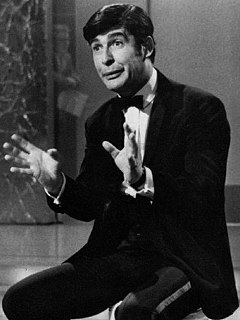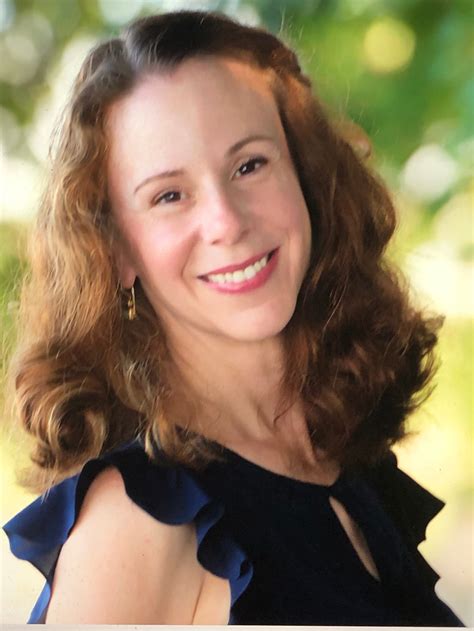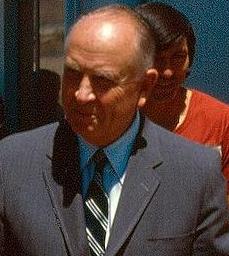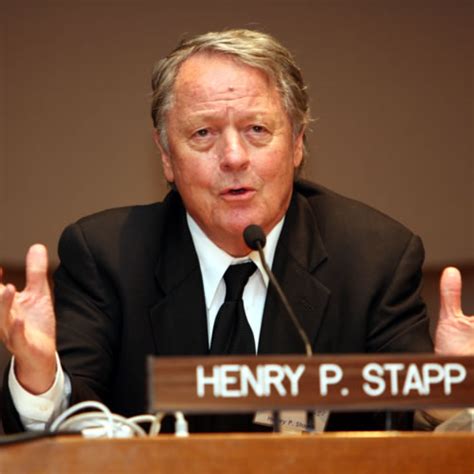A Quote by Stephen Covey
Our struggle to put first things first can be characterized by the contrast between two powerful tools that direct us: the clock and the compass. The clock represents our commitments, appointments, schedules, goals, activities - what we do with, and how we manage our time. The compass represents our vision, values, principles, mission, conscience, direction - what we feel is important and how we lead our lives. In an effort to close the gap between the clock and the compass in our lives, many of us turn to the field of "time management."
Quote Topics
Activities
Appointments
Between
Clock
Close
Commitments
Compass
Conscience
Contrast
Direct
Direction
Effort
Feel
Field
First
First Thing
First Things
First Things First
Gap
Goals
How
Important
Lead
Lives
Manage
Management
Many
Mission
Our
Our Lives
Our Time
Powerful
Powerful Tool
Principles
Put
Put First Things First
Represents
Schedules
Struggle
Things
Time
Time Management
Tools
Turn
Two
Us
Values
Vision
Related Quotes
There is usually a clock in our heads regarding decisions we make and the course of our lives. Sometimes this clock is helpful in that it get us to move rather than put off key actions. Other times, it creates us false sense of urgency that can cause us to overreact, lost patience and make poor decisions. In raising this issue in my book, I want people to be aware of the clock in their heads and question whether that clock is helping or hindering the quality of each particular decision.
Let us, then, take our compass; we are something, and we are not everything. The nature of our existence hides from us the knowledge of first beginnings which are born of the nothing; and the littleness of our being conceals from us the sight of the infinite. Our intellect holds the same position in the world of thought as our body occupies in the expanse of nature.
Thinking about time is to acknowledge two contradictory certainties: that our outward lives are governed by the seasons and the clock; that our inward lives are governed by something much less regular-an imaginative impulse cutting through the dictates of daily time, and leaving us free to ignore the boundaries of here and now and pass like lightning along the coil of pure time, that is, the circle of the universe and whatever it does or does not contain.
It's so easy in life for us to receive blessings, many of them almost uncounted, and have things happen in our lives that can help change our lives, improve our lives, and bring the Spirit into our lives. But we sometimes take them for granted. How grateful we should be for the blessings that the gospel of Jesus Christ brings into our hearts and souls. I would remind all of you that if we're ever going to show gratitude properly to our Heavenly Father, we should do it with all of our heart, might, mind, and strength-because it was He who gave us life and breath
We should probably start searching around a little earlier in our lives for what I call parallel activities, because most of us get entrenched in our careers. And, of necessity, we're earning a living, and it's taking our time, and we're building our résumé, and we want our résumé generally to be our proficiency within our field, because chances are we're going to be applying for another position within the field. So we tend to put off a lot of this sort of what I call parallel discovery until we're either very successful and have the time to do that, or more often until we're retired.
Our beliefs about ourselves in relation to the world around us are the roots of our values, and our values determine not only our immediate actions, but also, over the course of time, the form of our society. Our beliefs are increasingly determined by science. Hence it is at least conceivable that what science has been telling us for three hundred years about man and his place in nature could be playing by now an important role in our lives.
How aware are we of our own inner life, our spirituality-something so intangible yet so priceless? How much effort do we make to perceive that which is not obvious, which can neither be seen nor heard? I believe the exploration and enrichment of the human spirit is what determines our very humanity. Such enrichment provides an inner compass that can lead civilizations to greatness.



































